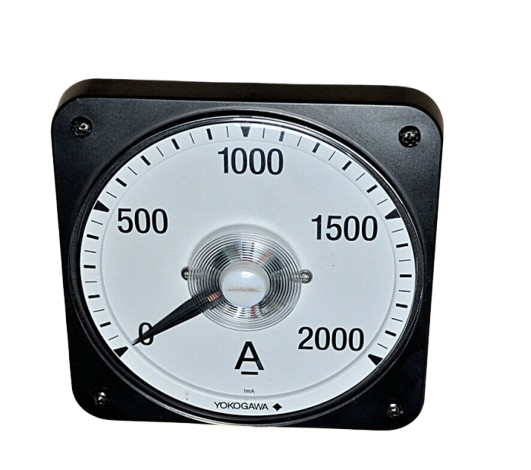Industrial automation is largely dependent on precision and accuracy. The meters are used as one of the most important applications for achieving such goals. Meters help in giving real-time data regarding voltage and current measurements, pressure monitoring, and flow measurement. The purpose of these meters will be discussed below, along with the application and the benefits they have in modern industries.
What Are Meters in Industrial Automation?

Devices utilized in industrial automation to monitor measure display certain parameter critical to the system running is, for example, electrical parameter such as voltage, currents, and power, it could be a physical such as temperature, pressure and flow rate. Meters are part of the structure of automated systems for reliable and precise performance.
Key types of Meters on industrial automation
1. Voltage Meters
- These meters measure a specified electrical potential difference in electric circuits.
- Proper voltage levels for safe operation of equipment
2. Current Meters
- Measuring electrical current in circuits.
- Helps to diagnose overloads and failure in equipment.
3. Power Meters
- Measuring electric power consumption.
- Help in optimizing energy and cutting the cost.
4. Flow Meters
- Measuring the fluid or gas flow rate in the pipelines.
- Ensuring steady process operation in oil and gas industries.
5. Pressure Meters
- Measure pressure levels in the system.
- Protects from overpressure situations, that might damage the equipment.
6. Temperature Meters
- Measuring system temperature.
- Protect equipment from overheating and freezing.
Applications of Meters in Industrial Automation
The meters are used in all kinds of industries like manufacturing, energy, oil and gas, pharmaceuticals, and food processing. Here are major applications:
1. Energy Management
- Power and energy meter can measure electricity consumption efficiently.
- Voltage and current meter keep power supply stable to various critical systems.
2. Process Control
- Flow meter retains fluid uniformity for mixing processes like chemicals or water processing.
- Pressure meters measure the levels inside reactors or storage tanks to guarantee absolute safety.
3. Protection of Instruments
- Meters monitor faults, for instance voltage surges, pressure reductions. This prevents damages from equipment.
- Temperature measuring meters protect machines from running with hot and cold temperatures outside permissible levels.
4. Product Integrity
- Accurate metering provides quality products with strong parameters controlling, such as temperatures for food processing, pressures in drug manufacturing.
Advantages of Applying Meters to Industrial Automation
1. Better Performance: Meters offer real-time data, thus the operation can be altered and optimized in real time. This reduces waste in energy consumption and improves the system performance in its entirety.
2. Increased Safety: Meters act as the first line of defense to any potential fault. An abnormal condition identified early is able to avoid accidents and equipment damage.
3. Cost Savings: Identification of inefficiencies results in decreased energy usage and saving in terms of maintenance cost.
4. Correct Monitoring: Meters provide accurate measurements, which are critical to the consistency and reliability of industrial processes.
5. Compliance: Meters ensure compliance with safety and operational standards, an essential need in highly regulated industries such as pharmaceuticals and energy.
Choosing the Right Meters
The right meter will depend on the specific needs of your industrial automation system. Here are some things to consider:
1. Measurement Range: Ensure that the meter can take the range of parameters in your system.
2. Accuracy and Resolution: Opt for meters with high accuracy and resolution to deliver accurate reading.
3. Compatibility: Ensure the meter is compatible with your existing systems and communication protocols.
4. Durability: Industrial environments are harsh, therefore select meters with robust designs capable of withstanding extreme conditions.
5. Cost-Effectiveness: Balance features and price to select a meter that meets your budget without compromising on performance.
Meters play a vital role in industrial automation and are crucial to supplying information on precision, efficiency, and safety. They help measure voltage, monitor flow, and maintain optimum pressure, thereby making the processes reliable and consistent in most industries. When choosing meters, consider your specific needs, from measurement ranges to advanced features like IoT connectivity. By investing in the right meters, you’ll not only enhance your automation systems but also drive cost savings and sustainability. For industries looking to boost their efficiency and reliability, adopting modern meters is the way forward. Reliable meters aren’t just tools—they’re the backbone of accurate industrial automation.





Validate your login
Sign In
Create New Account